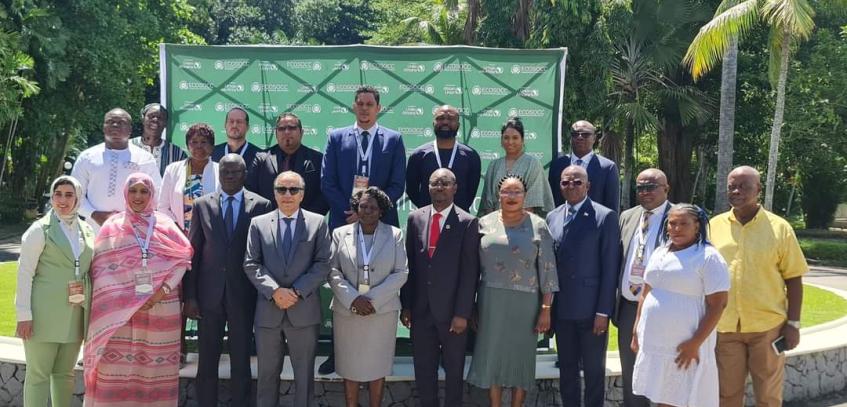The African Union Economic, Social and Cultural Council (ECOSOCC) held a joint working session with the Pan-African Parliament (PAP) on the Continental Free Movement Protocol.
The working session brought together Members of Parliament from AU member states serving on the PAP Committee on Trade, Customs and Immigration.
The dialogue is the first step in ECOSOCC’s Parliamentary Outreach campaign focused on member state ratification of the AU Continental Free Movement Protocol. This follows a two-year media and civil society campaign and national dialogues on free movement at the level of individual member states.
The Protocol was adopted in 2018 by the AU Assembly of Heads of State and Government to be co-implemented alongside the African Continental Free Trade Area (AfCFTA).
Despite its critical importance in operationalizing it, only four member states have ratified the Protocol out of the 15 ratifications needed for it to go into force. ECOSOCC has launched the Parliamentary outreach campaign in partnership with PAP to advocate for the full ratification and domestication of this important Protocol.
The opening ceremony of the ECOSOCC-PAP working session was graced by Mr. William Carew, Head of Secretariat, ECOSOCC; ECOSOCC General Assembly member, Mr. Alvin Laurence, Mr. Harou Massa Gali, Deputy Clerk, Legislative Business and Conferences, PAP; and Hon. Sen. Margaret Kamar, representative of the Chairperson of the PAP Committee on Trade, Customs, and Immigration Matters, who opened the working session.
Mr. Carew noted the importance of the AfCFTA and the MFP noting that the initiatives represented the dawn of a new era, where free movement of people unlocks untapped potentials, fosters economic growth and promotes socio-cultural exchange.
“The journey towards realizing the full potential of the FMP has its challenges as only four AU member states have ratified it. We need to intensify our efforts in addressing misconceptions and highlighting the immense benefits that come with a united and integrated Africa,” he said. “Parliamentarians, as agents of change and representatives of the people, your participation is crucial in bridging the gap between continental policies and national action. ECOSOCC working with PAP shows our commitment to synergizing legislative and CSO efforts towards common goals.”
A key factor hindering ratification of the FMP is the reticence of member states rooted in untested assumptions about the potential adverse impacts of free movement. concerns such as job displacement, security risks, and strain on public services have led to hesitation in fully embracing the principles of free movement. Additionally, political dynamics within member states, including domestic political considerations, competing national interests, and varying levels of commitment to regional integration, contribute to the challenges in ratifying the protocol.
In the efforts to build political will to ratify the FMP, parliamentarians have a crucial role to play. As representatives of the people, parliamentarians hold the responsibility of translating continental policies into national actions. Their active engagement in the ratification process is crucial for fostering political will and addressing concerns within member states.








